President Biden and former President Donald Trump won Maine’s presidential primaries Tuesday, further solidifying leads in their respective parties and the likelihood of a rematch of the 2020 election.
The Associated Press declared the winners roughly 30 minutes after polls closed. With 19% of votes counted at 9:40 p.m., Trump received about 72% of the vote in the Republican primary, compared to 27% for former South Carolina Gov. Nikki Haley.
In the Democratic primary, Biden had received 93% of the vote compared to 7% for U.S. Rep. Dean Phillips of Minnesota.
Maine was one of 15 states holding a so-called Super Tuesday contest. Biden and Trump also won commanding victories in other states Tuesday, though the results were neck-and-neck for Trump and Haley in Vermont as of 9:40 p.m.
It was the first time a Maine primary was open to unenrolled voters in addition to members of the political parties. But election officials reported low turnout across the state, and only 20% or fewer of registered voters were expected to take part.
Most of the attention was on the Republican primary between Trump and Haley, who made a brief campaign stop in Portland on Sunday and notched her first win last weekend by taking the Washington, D.C., primary. The three other candidates appearing on the Republican ballot have suspended their campaigns.
Trump has dominated the early primary states. He received a victory of a different sort on Monday, when the U.S. Supreme Court ruled that states do not have the authority to exclude him from their ballots under a little-use anti-insurrection clause in the U.S. Constitution over his involvement in the Jan. 6 riots.
Although the decision pertained to a case out of Colorado, it prompted Secretary of State Shenna Bellows to withdraw her ruling that Trump was ineligible.
On the Democrats’ presidential primary ballot, Biden has an overwhelming lead nationally and faced little challenge from Phillips. There was also one declared write-in candidate on the ballot, Stephen Lyons of Maryland, according to the Maine secretary of state’s office.
VOTER TURNOUT LOW
Though turnout was low Tuesday, the primaries drew voters with strong feelings about the Republican and Democratic front-runners, as well as unenrolled voters taking advantage of the new semi-open primary system.
In Brunswick, Maggie Stanley, 61, came out to vote for Biden. She said she almost stayed home but felt it was important to support the president.
“Everyone says he’s old, and I guess he is, but he’s decent,” she said. “You used to just assume they all were.”
Stanley said she’s nervous about the general election because she doesn’t think enough people pay attention or don’t believe what’s actually happening.
John Donnelly, 34, stopped in before work so he could vote for Trump over Haley.
“The race is over,” he said. “I don’t even know why (Haley) is still in. This is Trump’s party.”
Asked whether he thought some Republicans might not be able to support Trump in the general, Donnelly wasn’t concerned.
“Republicans don’t stay home,” he said.
Bellows said she expected low voter turnout Tuesday because less than 5% of voters requested absentee ballots, which she said was “surprisingly low.” A total of 36,194 absentee ballots had been requested as of 3 p.m. Tuesday, and more than 31,300 returned.
Maine has about 948,734 registered voters, about 896,722 of whom were eligible to vote in the primary. Final turnout numbers for the state were not available late Tuesday.
The Green Independent, Libertarian and No Labels Parties did not choose to hold presidential primaries, so only Democratic, Republican and unenrolled voters could cast ballots Tuesday.
“I’m hoping to break 20%, but turnout could be lower than we have seen in a long time,” Bellows said prior to the close of polls Tuesday. “That could be because a consensus is emerging about leading candidates.”
In Portland, 7,036 voters cast ballots – just under 14% of the city’s 50,704 registered voters. In the Republican primary, Trump took 53% of the vote and Haley 44%.
PROTEST VOTES ADD UP IN PORTLAND
In the city’s Democratic primary, 73% voted for Biden and 4% for Phillips. Just over 20% of ballots were blank, which City Clerk Ashley Rand said was largely due to an effort led by activists who were encouraging voters to write in “cease-fire” on the Democratic primary as a way of protesting Biden’s support for the Israeli military campaign in Gaza.
Under Maine election law, the only write-in votes that are counted are for declared write-ins. Anything else written on a write-in line is reported as a blank.
The initiative came after 100,000 Democrats in Michigan voted “uncommitted” to protest Biden’s support for Israel’s Gaza campaign, which was launched in response to Hamas’ attack on Israel that killed some 1,200 people and saw 240 Israelis taken hostage. Maine doesn’t allow people to vote “uncommitted,” so activists launched the write-in campaign.
Jay Stonerook, a Portland voter, wrote-in “cease-fire” on their ballot. “It’s just the primary election, so it’s not the end of the world if you don’t vote for one candidate or another,” Stonerook said. “It’s a movement to show that people are purposefully not using the systems that are set up and in place because those systems are inherently broken.”
At Merrill Auditorium, Warden Carol Morrissette said there were a few unexpected issues election workers ran into Tuesday, such as one voter who didn’t realize he had enrolled in the No Labels Party and thus was not able to vote in the primary.
Just before 2 p.m., the polling station – one of 11 in the city – had gotten 166 voters. “We should be going home shortly after polls close tonight,” Morrissette said. “The counting should be easy.”
Shortly before 9 a.m. in Brunswick, voting was surprisingly brisk. Town Clerk Fran Smith said about 1,100 residents had requested absentee ballots, a small number, so she didn’t know what to expect.
“It’s very different from four years ago,” she said, referring to the 2020 Democratic primary.
Prior to Election Day, Smith said she and her staff fielded questions from voters about how the new semi-open primary would work. She said there didn’t appear to be too much confusion.
NEW SYSTEM FOR UNENROLLED VOTERS
The new rules allow unenrolled voters to participate in the Republican or Democratic primaries without registering as a party member. In previous primaries, only party members could cast votes. Unenrolled voters Tuesday will be able to choose a Republican or Democratic primary ballot, but not both. Party members may only vote in the party they’re enrolled in.
Bellows said voters who may have accidentally enrolled in a political party, including the newly certified No Labels Party, were not allowed to unenroll the day of the primary but will be able to do so ahead of the June primaries.
She acknowledged that some voters may get upset if they were planning to vote in a certain primary, only to find out they can’t. Some voters have said they did not know they were changing their party enrollment when signing a petition to support formation of the No Labels Party.
“We encourage people to be kind and respectful to the clerks,” Bellows said. “They implement the law – they don’t make the law.”

A man exits the voting area while other voters cast their ballots at booths in Kennebunk Town Hall on Tuesday morning. Gregory Rec/Staff Photographer
Dex Plunkett, an unenrolled voter, was taking advantage of the new primary rules to vote in the Republican primary in Portland.
“I usually vote Democratic but I’m really concerned about the last four years Trump was in office and am concerned by the stuff DeSantis has been doing down in Florida and I would rather have anyone else on the Republican ballot,” said Plunkett, 20.
They ranked Ryan Binkley, a Texas businessman who dropped out of the presidential race last week, first, followed by Haley and Vivek Ramaswamy, who has also dropped out of the race. Binkley and Ramaswamy still appeared on Tuesday’s ballot because they did not notify the secretary of state’s office of their withdrawal from the race in time for their names to be removed.
Plunkett, who is transgender, said they don’t like Trump because he has attacked transgender rights and they do not agree with his positions on reproductive rights. “Trump also just does not respect the way our government is meant to function,” they said. “He simply does not respect the Constitution.”
Amy Yasko, another unenrolled Portland voter, cast her ballot for Haley in the Republican race. Yasko said she attended Haley’s rally in Portland with a friend on Sunday and was struck by how calm and rational she was.
“The main reason I came out was she talked about the fact there is no normal anymore, and our kids don’t know what normal is anymore,” Yasko said. “It’s so divisive. It’s got to be measured and normal again. I thought, ‘Wow, that is the best thing I’ve heard all year.’ ”
Yasko said she tends to vote more liberal and doesn’t agree with all of Haley’s positions, but it didn’t stop her from voting for her. “Nothing is perfect, so why would I expect any candidate to totally align with my personal views?” Yasko said.
At the South Portland Boys and Girls Club, a few voters stopped in to cast their ballots at a mostly empty polling location Tuesday morning.
Deb Traub said she’s an independent who typically votes Democratic in general elections, but she chose to vote in the Republican primary to vote for Haley.
“It’s just gotten too toxic,” Traub said, referring to Trump. “We need to lean into something else.”
Traub said she votes in every election, even if “only the dog-catcher” is on the ballot.
Andrea Michaud said she voted in the Democratic primary and cast a ballot for Biden.
“Civic engagement is important, a way to come together as a community and make sure we have a voice,” Michaud said.
Copy the Story LinkSend questions/comments to the editors.


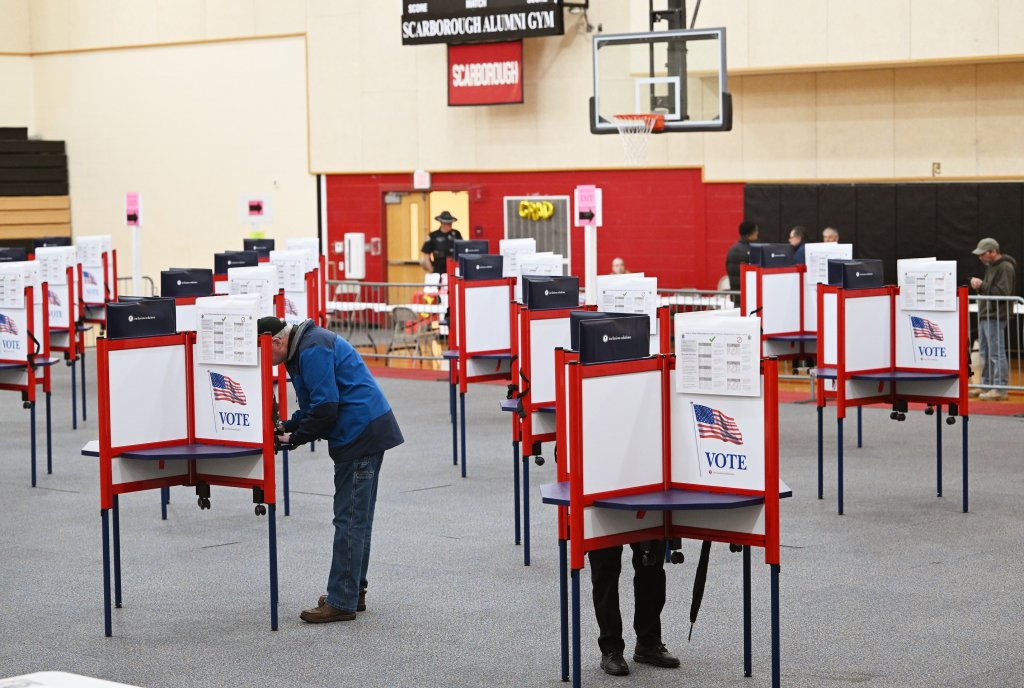
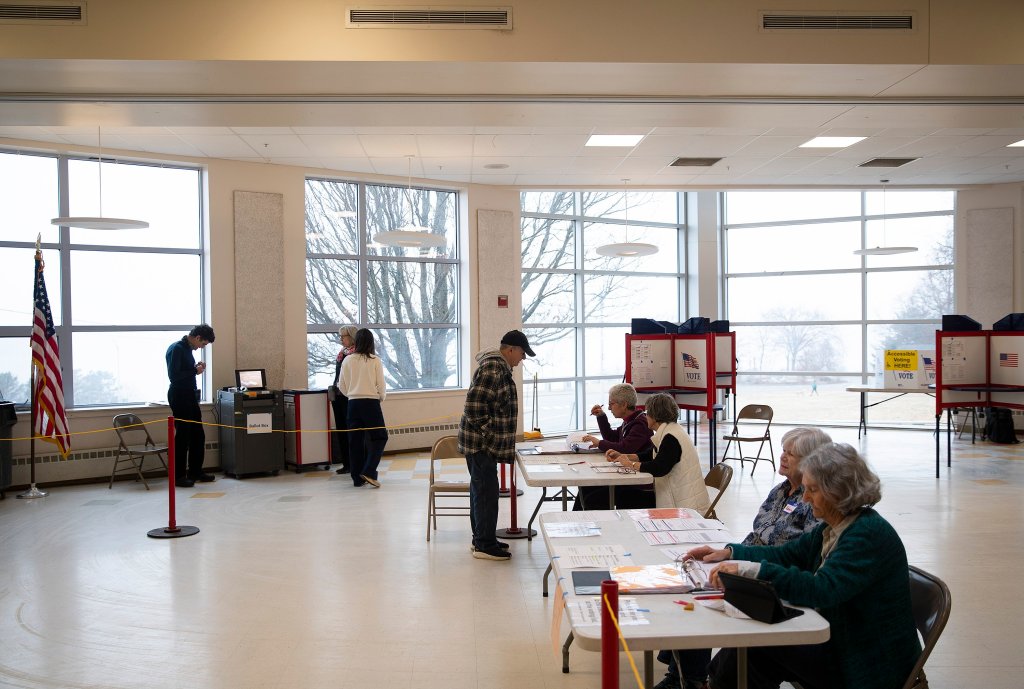
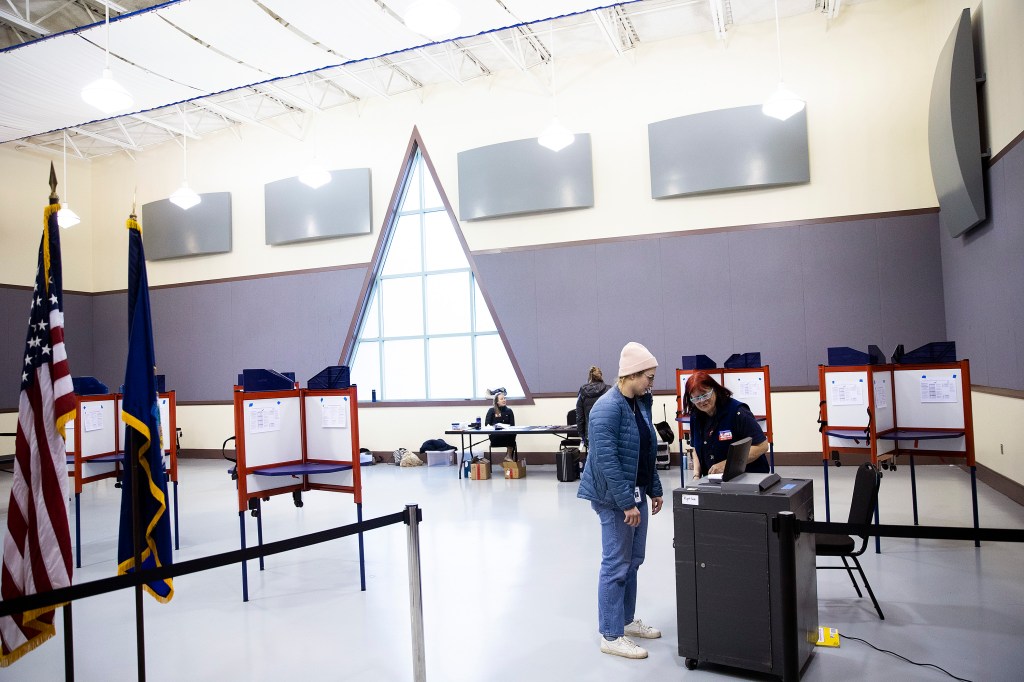
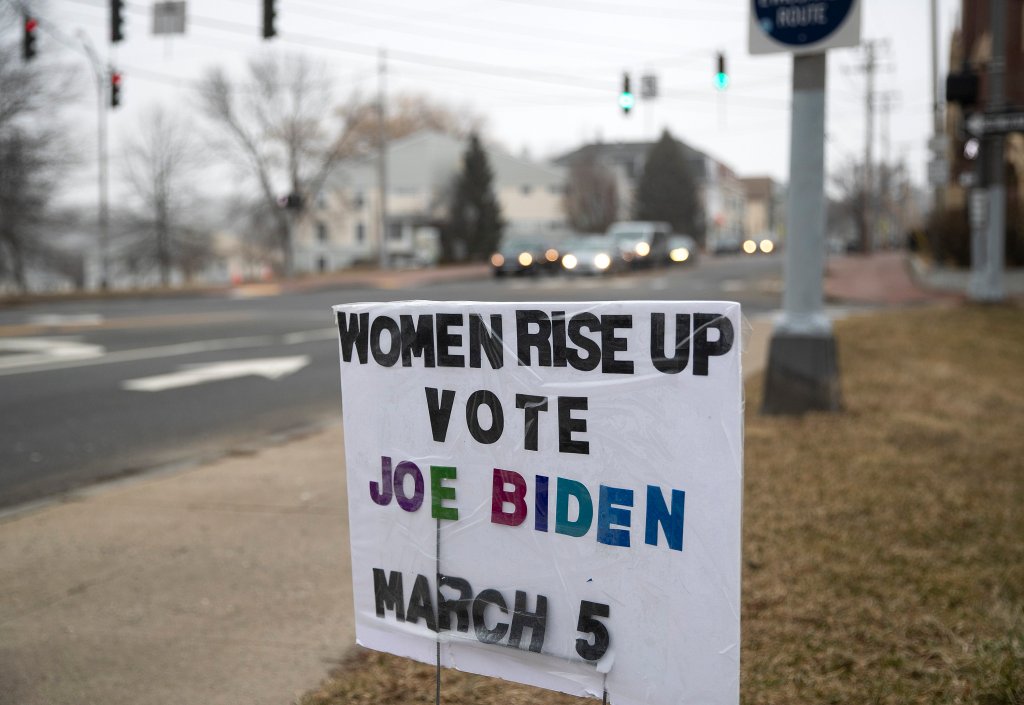
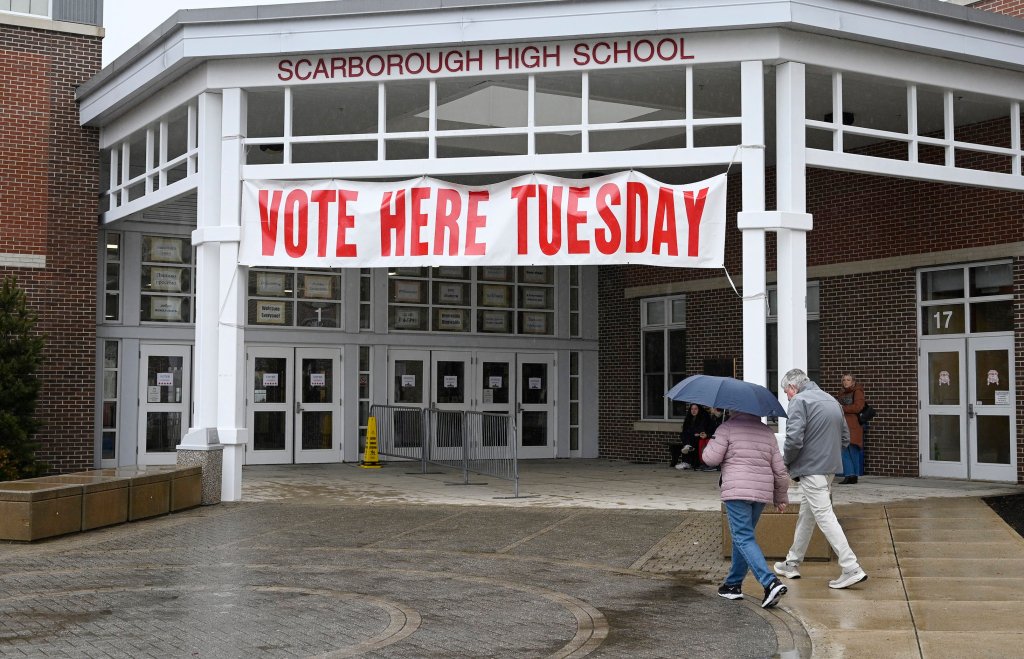

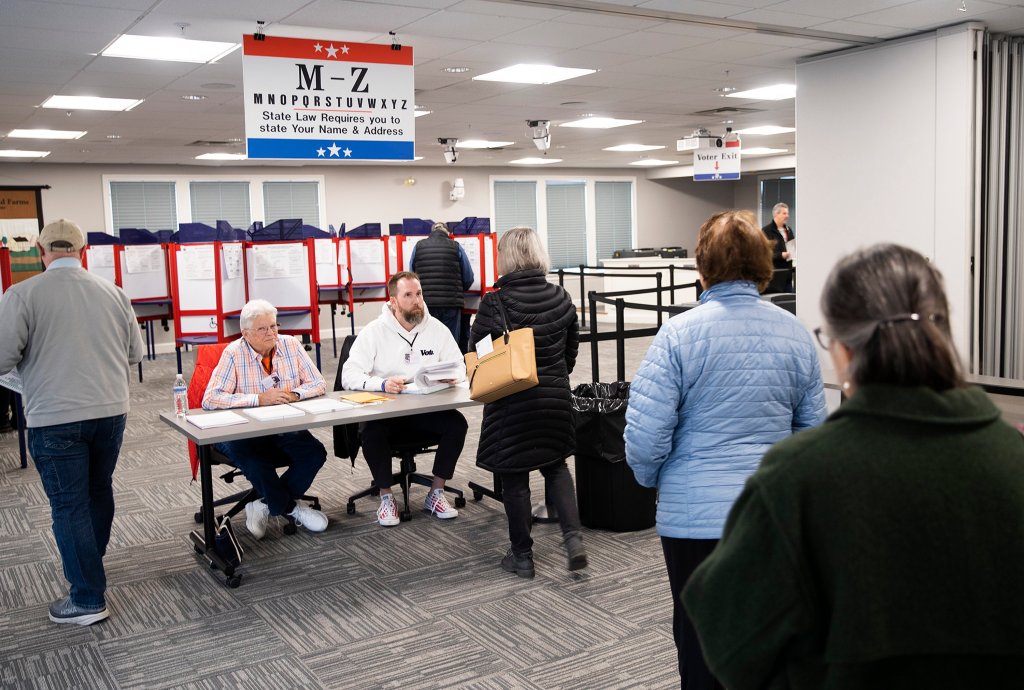
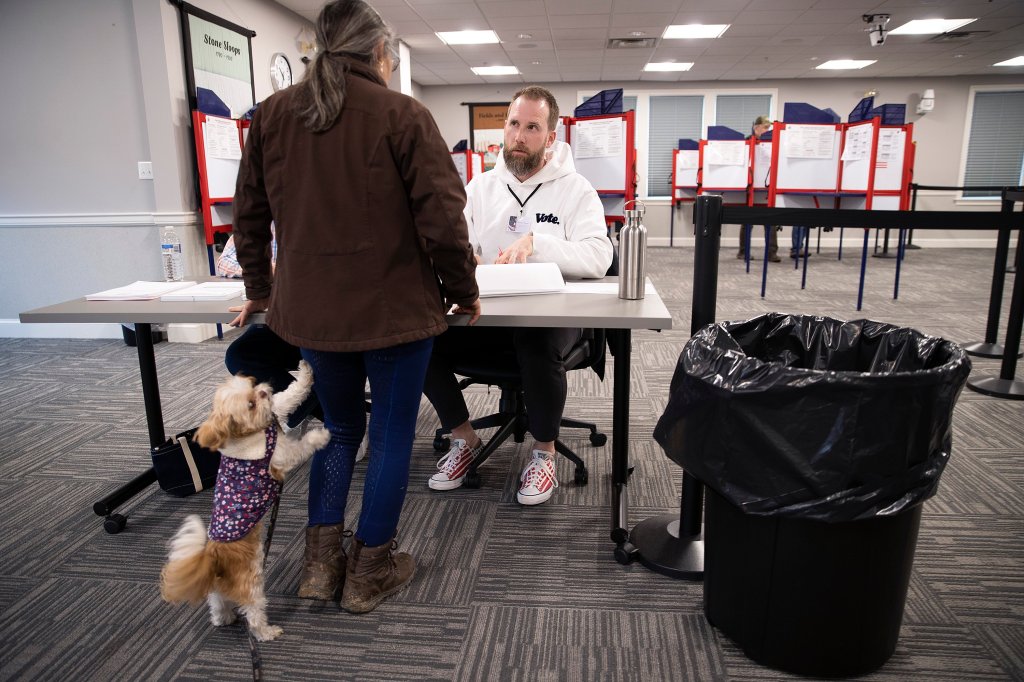
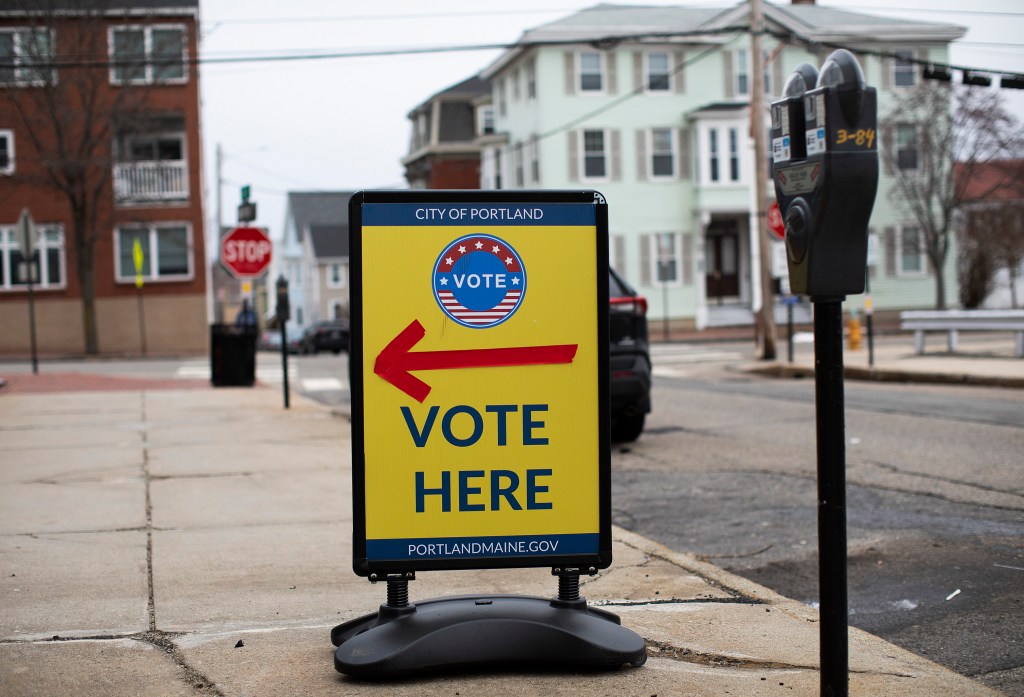
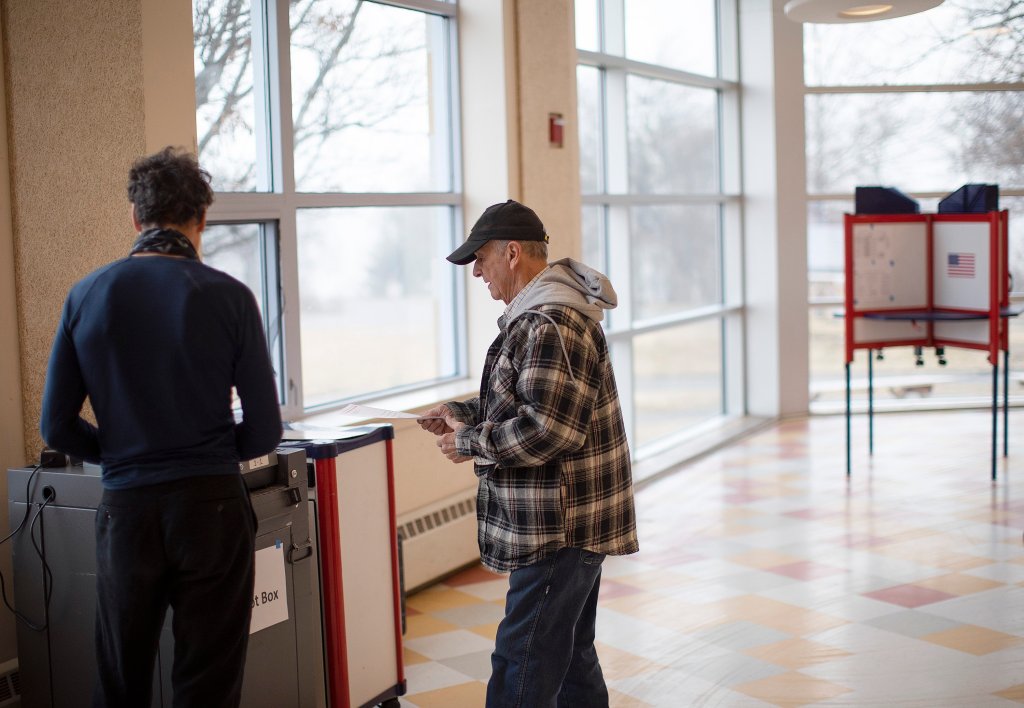
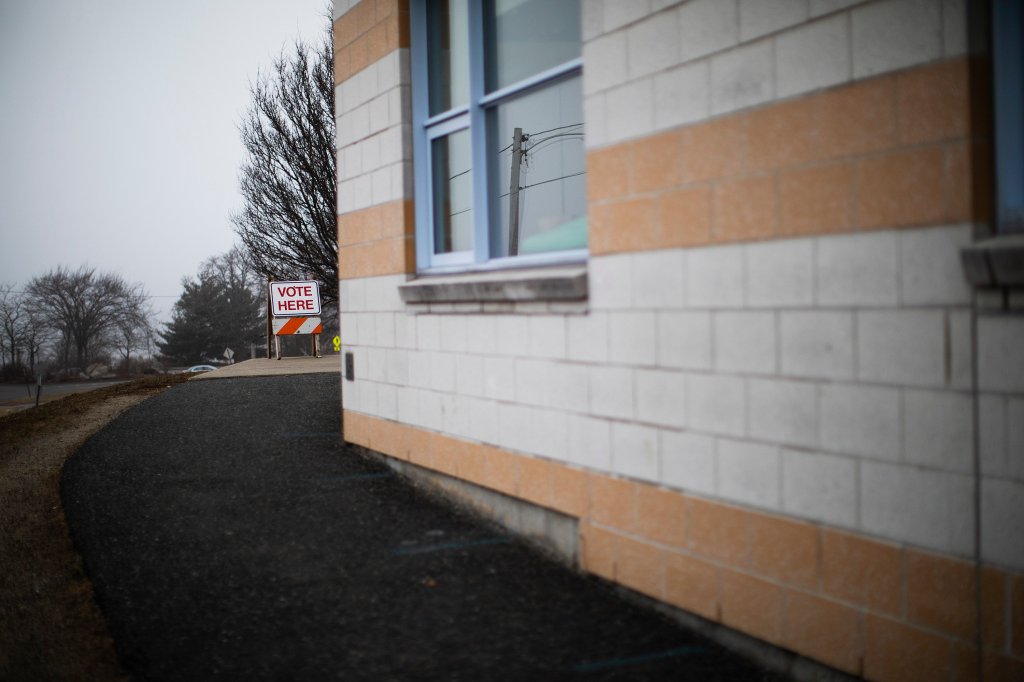

Success. Please wait for the page to reload. If the page does not reload within 5 seconds, please refresh the page.
Enter your email and password to access comments.
Hi, to comment on stories you must . This profile is in addition to your subscription and website login.
Already have a commenting profile? .
Invalid username/password.
Please check your email to confirm and complete your registration.
Only subscribers are eligible to post comments. Please subscribe or login first for digital access. Here’s why.
Use the form below to reset your password. When you've submitted your account email, we will send an email with a reset code.